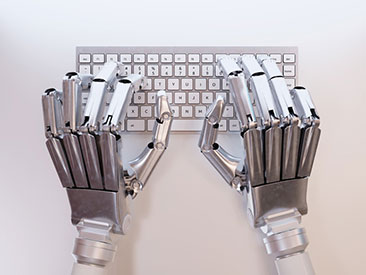
Data being a very important asset of almost every industry, accurate data input is essential. At present, businesses meet their data processing requirements with the help of data entry services. With lots of data such as historical data that still need to be digitized, there will be considerable document scanning work available for some time to come. However, the question is whether long-term need for data entry is likely to be reduced. Well, it needn’t necessarily be so. There are many critical evaluations as regards the extent of change, speed and capabilities of technologies, preference of humans over machines, and cost issues associated with the new robotic technology. Experts on this subject think that a wholesale replacement by Artificial Intelligence (AI) may not be possible though there may be a wide-ranging transformation as regards labor force. The risk of using AI in place of human intelligence was recently demonstrated by the Tesla Motors incident – the fatal Florida crash that involved its autopilot feature. (This was reported in the Wall Street Journal.) This leaves us with the thought that much more time is needed before machines can entirely take over even basic human tasks easily.
Getting back to the thought that triggered this blog, going by the analysis of the Institute for Robotic Process Automation (IRPA), RPA is expected to benefit any organization that is dependent on labor on a large scale for general knowledge process work requiring people to carry out high-volume, highly transactional functions. In such settings, artificial intelligence may be able to change the way organizations view and administer business processes, workflow, back office work, IT processes and remote infrastructure. Challenges faced by IT businesses such as lack of skilled people, insufficient budget, and intense pressure to deliver better services at a lower cost and at a faster rate can be met by RPA. Proponents of this new technology say that when IT processes are performed with lesser number of people, the cost savings can be put to much better use to improve the bottom line of the company. Moreover, skilled personnel can be spared from mundane, boring tasks and devote their time to more constructive activities.
Well, a completely automated business environment may become a reality only in the long term. That too, it cannot be guaranteed whether software can completely replace humans. Another important consideration is the huge costs involved in implementing and maintaining such highly advanced technology. While it may be possible for blue-chip companies, small and mid-sized businesses will continue using reliable business process outsourcing solutions from vendors they can trust.



